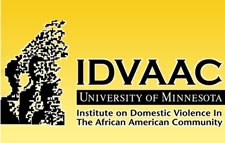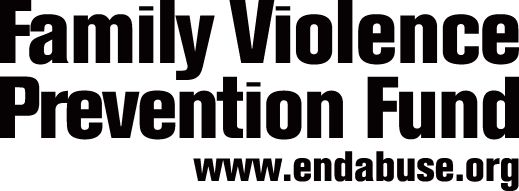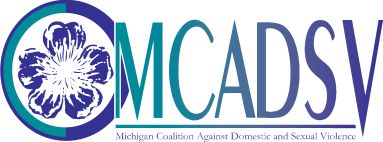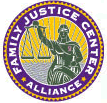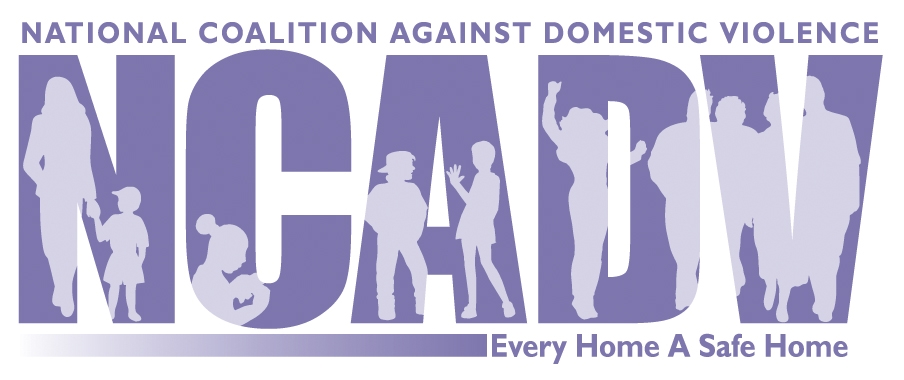
National Conference
November 4th & 5th, 2010
The 15th Annual BISC-MI Fall 2010 Conference
Pontiac, Michigan
REGISTRATION IS OPEN!
13 CEUs
Be sure to register early as
REGISTRATION IS LIMITED TO 350
(new increased capacity!)
Be A Part of This Pioneering Event!
Women’s use of force in heterosexual relationships presents controversial and complex issues, particularly when the majority of these women are survivors of domestic violence. Survivors’ use of force challenges service providers across institutional settings. These challenges can be difficult to talk about and especially difficult to address. In an effort to inform the evolving conversation – and respond to erroneous claims of gender symmetry – the Batterers Intervention Services Coalition of Michigan (BISC-MI) is hosting a national November 4 & 5, 2010 conference titled: When She Hits Him: Why Gender & Context Matter. This pioneering event will assemble professionals from diverse fields to share innovations in thought, perspective, intervention, and systems navigation. Conference participants will have the opportunity to enhance their knowledge base as they explore why a gendered analysis and contextual approach to intimate partner violence are essential components of informed and effective service provision.

https://www.regonline.com/wshh
OVW Grantees interested in attending this conference should seek
approval from their Program Manager since OVW
has already approved this training!
If you are currently receiving one of the following OVW Grants:
(1) Grants to Encourage Arrest
(2) STOP Violence Against Women Grants, or
(3) Rural Domestic Violence and Child Victimization Enforcement Grant Program
Contact your Program Manager to request approval to utilize grant funds to attend this important conference!
A partnership of Batterer Intervention Services Coalition of Michigan and the U.S. Department of Justice, Office on Violence Against Women
Click Here for the Conference Program

The Honorable Judge Susan B. Carbon
Director of the United States Department of Justice’s
Office on Violence Against Women (OVW)
CONFERENCE SPONSORS INCLUDE:
CONFERENCE RATES
Before October 15, 2010
$175.00 BISC-MI Member*
$235.00 Non Member*
After October 15, 2010 all fees above increase by $50.00
The conference rates include the following meals:
2 continental breakfasts and 2 lunches
*To find out more about becoming a BISC-MI member
go to: BISC-MI Membership
Conference Location
& LODGING RATES
Auburn Hills Marriott
Room Rates
$65.00 for a double or a single!
If you don’t have someone to share a room with, we are happy to assist!
As of 9-20-2010 The Marriott facility is full for lodging
We have negotiated with additional facilities for similar
lodging…please see below
Please email Peaty with any questions:Peatyh@cablespeed.com
You must make room reservations separately from your conference registration.
Rooms at this rate are limited!
Auburn Hills Marriott® Pontiac at Centerpoint 3600 Centerpoint Parkway Pontiac, Michigan 48341 USA
Phone: 1-248-253-9800 |Fax: 1-248-648-6005 |Sales: 1-248-648-6016 ext. N/A |Toll-free: 1-800-228-9290
As of 9-20-2010 The Marriott facility is full for lodging We have negotiated with additional facilities for similar lodging
Just a 2 minute walk from conference facility
Studio Suite: Residence Inn Detroit Pontiac/Auburn Hills
http://www.marriott.com/hotels/travel/dtwpt?groupCode=bisbiss&app=resvlink&fromDate=11/3/10&toDate=11/6/10
One Bedroom Suite: Residence Inn
Detroit Pontiac/Auburn Hills
*Rates include full hot breakfast buffet daily and light dinner Wednesday and Thursday evening.
Courtyard Detroit Pontiac/Bloomfield
http://www.marriott.com/hotels/travel/dtwcp?groupCode=bisbisa&app=resvlink&fromDate=11/3/10&toDate=11/6/10
Click Here for Travel Information

Conference Day 1
Thursday, November 4, 2010
7:30 a.m. – 8:30 a.m. Continental Breakfast
8:30 a.m. – 8:45 a.m. Housekeeping
8:45 a.m. – 9:00 a.m.
Welcome and Opening Remarks: The Honorable Judge Susan B. Carbon, Director of the United States Department of Justice’s Office on Violence Against Women (OVW)
Materials & Resources:
9:00 a.m. – 10:30 a.m. Keynote: Why Gender & Context Matter
Speaker: Ellen Pence
Summary: How did the early years of the battered women’s movement frame our contemporary assumptions regarding women who use violence? Why do gender symmetry arguments continue to endure? How does women’s use of force contextually differ from male battering behavior in terms of motivation, intent, and impact? Why do many advocates and practitioners allow criminal justice system language to redefine battered women who resort to force as offenders? Join us as we explore these questions with a founding mother of the battered women’s movement.
Materials & Resources:
Ellen Pence, founder and Executive Director of Praxis, is honored by a collection of articles in the most recent edition of the Violence Against Women journal, for her many years of steadfast work in the battered women’s movement. Congratulations Ellen, and thank you for your lifelong commitment to improving the lives of battered women and their children!
10:30 a.m. – 10:45 a.m. Break
10:45a.m. – 12:15p.m.
Plenary: Research on Sex, Gender, & Violence: What Practitioners Should Know
Presenter: Molly Dragiewicz
Summary: Media attention to research on violence and abuse seems to focus disproportionately on statistics about the prevalence of violence, and to especially highlight instances where women use violence. The focus on counting acts out of context often overshadows all that we do know about the dynamics of violence and abuse. Too often, the research on sex and gender differences in violence and abuse are presented in misleading ways. This talk will review key research findings on the contribution of gender and patriarchy to violence against women that can help practitioners understand what the research does and does not tell.
Materials & Resources:
12:15p.m. – 1:15p.m. Lunch Provided
1:15 p.m. – 2:45 p.m. Plenary: Why Gender & Context Matter: Perspectives from the Criminal Justice System (CJS)
Panelists: Andrea Bible, Honorable Judge Susan B. Carbon, Brant Funkhouser, James Henderson, Judge Elizabeth Pollard Hines, Erin House, and Judge Jeffrey Kremers, Detective Tiffany Small
Moderator: David Garvin
Summary: Criminal justice system representatives including an advocate, a prosecutor and defense counsel, judges, and probation will discuss the critical importance of context from their unique perspectives. Topics include: the delicate process of receiving and/or sharing critical information that shapes case understanding; how the legal system can re-victimize battered women; how advocates can effectively provide timely advocacy when victims of ongoing battering are arrested; and how culture and ethnicity may play a role in case understanding. Attendees will have the opportunity to ask questions of panel members.
Materials & Resources:
Audio conference with Professor Leigh Goodmark, Advocate Andrea Bible, and Judge Kremers regarding Professor Goodmark’s article: Goodmark, L. (2008).
When is a batterered woman not a battered woman? When she fights back
Yale Journal of Law and Feminism. Vol. 20, No. 75, pp. 75-129.
2:45 p.m. – 3:00 p.m. BREAK
BREAKOUT SESSIONS (5)
3:00 p.m. – 4:30 p.m.
When Victims of Battering are Arrested: Defense-Based Advocacy Essentials
Presenter: Andrea Bible and Laurie Cloutier-Lee
Summary: In this workshop, advocates will explore concrete individual advocacy strategies for working with survivors charged with crimes. As part of those strategies, we will discuss issues of confidentiality, the role of advocates as part of legal defense teams, collateral consequences of arrest and convictions on domestic violence survivors, and the complexity of safety planning when working with domestic violence victims who are also defendants in criminal cases.
Materials & Resources:
3:00 p.m. – 4:30 p.m.
“You Want to Fight? We Gonna Fight!”: Black Women’s Retaliatory Responses to Intimate Partner Abuse
Presenter: Hillary Potter
Summary: Using in-depth interviews with Black women abused by male intimate partners, this presentation addresses the women’s proclivity to physically retaliate against the abusers, including those thoughts and actions of lethal proportions. Black women, in general, endure considerable amounts of racism, sexism, classism, and additional biased behaviors by others, which affect all ages, socioeconomic statuses, and educational levels of Black women. Accordingly, the interviewees fought their abusers as another form of domination that they must resist on a regular basis. The women did not usually frame their abuse as “battering” or “victimization,” and this inability to view themselves as victims further aided in the women’s inclination to respond to the batterers’ violent acts with corresponding force.
Materials & Resources:
Understanding African American Women’s Experiences With Intimate Partner Abuse Using an Integrated Approach
3:00 p.m. – 4:30 p.m.
Creating Curriculum for Women Arrested for Using Force
Presenters: Jeffrie Cape and Lisa Young Larance
Summary: Interactive workshop that will address the philosophical underpinnings of creating accountable curriculum for women arrested for using force. Specific tools and strategies will be shared. Designed for beginners and experienced facilitators.
Materials & Resources:
CapeLarancewshhHANDOUT
Vista Curriculum: http://www.jbws.org/publications.html
Larance2006ServingWomenWhoUseForce
LYLarancePAAMWinter_07articleonly
Renew website
3:00 p.m. – 4:30 p.m.
Incarcerated Women Convicted of Violent Offenses: Prevalence, Characteristics and Intervention
Presenter: Sheryl Pimlott Kubiak
Summary: Although women are more likely to be the victim of a violent crime, rather than the perpetrator, of a violent crime, approximately 20% of incarcerated women are sentenced for assaultive offenses. The limited research to date suggests that the associated correlates of violent offending for women are substance use disorders and victimization histories, but there is little discussion or research on intervention. It is likely that pathways to and from aggressive behavior may differ for women and men, but rehabilitation within the institution is often based on a male model. This presentation provides an overview of the characteristics of women who are incarcerated for violent crimes; the types of violent crimes they commit; correlates of violence; and strategies for intervention.
Materials & Resources:
Sheryl_Kubiak
3:00 p.m. – 4:30 p.m.
Women Who Are Violent: Victims or Perpetrators?
Presenter: Terese Dick, Cindene Pezzell, and Janet Prater
Summary: This session addresses the defense attorney’s role in representing female clients, in criminal courts, who are charged with violent criminal offenses. A closer look will be taken at sources of information available to defense attorneys in representing female clients, including law enforcement, medical personnel, AODA, survivor support groups, and victim-witness advocates. The purpose of the session is to increase the skills of criminal justice system personnel, as well as those associated with the system, to identify, assist, and ultimately defend women who may be domestic violence victims and survivors of physical and sexual abuse. Further analysis of cases in which survivors are engaged in criminal activity in order to avoid further abuse from their battering partners.
Materials & Resources:
Materials will be available during the workshop
5:00 p.m. – 6:30 p.m.
Both Sides of the Fence: Creative Resistance with Criminalized Women
Presenter: Carol Jacobsen
Summary: For women whose crimes are linked to their abuse, including killing their batterers, unequal treatment by the law and gendered modes of punishment often lead to unfair convictions and long sentences. Drawing on her long-term relationships, writings and production of grassroots films with incarcerated women, as well as her role as Director of the Michigan Women’s Justice and Clemency Project, Jacobsen will present several clips from her films narrated by women prisoners and discuss how women in prison resist both the hopelessness of their situation and the inhuman conditions of their lives to find strategies of resistance and partnerships with feminists to become agents challenging norms of justice, the institution of the family, and the penal system’s practices of four point chaining, medical neglect, rapes, harassment and retaliation.
Materials & Resources:
Michigan Women’s Justice & Clemency Project:http://www.umich.edu/~clemency/
Remember if you have dinner at Papa Vino’s and BISC-MI will receive 10% of your check as a donation:
Conference Day 2
Friday, November 5, 2010
7:30 a.m. – 8:30 a.m. Continental Breakfast
7:45 a.m. – 8:15 a.m. BISC-MI Annual Meeting
8:30 a.m. – 8:45 a.m. Housekeeping
8:45 a.m. – 9:00 a.m. Welcome: Monique Saffold
9:00 a.m. – 10:30 a.m. Panel: Collateral Consequences of Battered Women’s Arrest
Presenters: Honorable Judge Susan B. Carbon, Melissa Dichter, LeTonia Jones, Charo Ledon, S. Kerene Moore, Hillary Potter, and Rebecca Shiemke
Moderator: Brant Funkhouser
Summary: Advocates, attorneys, researchers, and practitioners will discuss the multiple practical implications arrest often has on the lives of battered women who have been arrested for using force against their partners. The impact of arrest for women of diverse cultural, economic, and ethnic backgrounds will be discussed in terms of child custody rights, immigration status, and more. The discussion encourages a deeper understanding of the gendered implications criminal justice system involvement often has on the lives of these women.
Materials & Resources:
PowerPoint Presentation on Collateral Consequences
Web resource on subject matter
Brochures addressing legal issues for individuals with a criminal record
NCDBW_Collateral_Consequences_Internet_Resources
NCDBW_ Impact_of_Arrest
The State Bar of Michigan has links to a client questionnaire, “know your rights” brochures on employment, immigration and housing, and the Michigan Reentry Law wiki at:http://www.michbar.org/programs/criminalissues.cfm
10:30 a.m. – 10:45 a.m. BREAK
10:45 p.m. – 12:15 p.m.
Practitioner Panel: Practical Complexities and Considerations of Providing Groups for Court-Ordered Women
Panelists: Beth Beams, Center for Nonviolence; Jeffrie Cape, WEAVE; Donna Gardner Jacoby, Licensed Clinical Social Worker; Lisa Young Larance, RENEW; Debjani Roy, MANAVI; and Ellen Pence, Director, Praxis International .
Moderator: Holly Rosen
Summary: Practitioners from around the country will share their micro-and macro-systems experiences providing intervention and support to women who have used force. The discussion will provide an overview of the inherent challenges and professional dilemmas involved in meeting the complex needs of women arrested and court-ordered to intervention since they are often survivors of domestic violence.
Materials & Resources:
victim_defend_chapter
Vista Curriculum: http://www.jbws.org/publications.html
Larance2006ServingWomenWhoUseForce
LYLarancePAAMWinter_07articleonly
Audioconference: Women Who Use Force Against Heterosexual Male Batterers
12:15 p.m. – 1:15 p.m. Lunch Provided
BREAKOUT SESSIONS (5)
1:15 p.m. – 2:45 p.m.
Should There Be State Standards for Women Who Use Force?
Panelists: Jeffrie Cape, Poco Kernsmith, Jennifer Welch, and Kathy Hagenian
Moderator: Erin House
Summary: Quality assurance and consistency of care can benefit from state standards. However, intervention programs for men provide us with thoughts to consider as the field of working with women evolves. The panelists will discuss some of the pros and cons of setting state standards for serving women who have used force in their relationships. Standards may contribute to ease of monitoring but also pose challenges to programmatic flexibility.
Materials & Resources:
basic_dv_definition
1:15 p.m. – 2:45 p.m.
Beyond Curriculum: Bringing Race, Culture, Class and Ethnicity into Programming
Presenter: Oliver Williams and Beth Richie
Summary: This workshop will examine the myriad issues of race, culture, class and ethnicity with regard to women who use force. By providing an overview of several national projects this workshop Dr. Williams will demonstrate why service providers should consider expanding their work to address the intersectionality of race, culture, class and ethnicity with regard to women who use force.
Materials & Resources:
1:15 p.m. – 2:45 p.m.
Groups with Women Who Use Violence In Intimate Relationships
Presenters: Ellen Pence and Thea Dubow
Summary: This workshop is designed to assist facilitators in addressing the needs of women who have used violence by drawing on their strengths, providing education and support, and helping them to envision a future that is free of violence. Topics include: the theoretical framework for working with women who have been arrested for using violence and contextual issues for women’s use of violence; how to conduct groups with women who have used violence; and tools, role-plays, and exercises for use in a group setting.
Materials & Resources:
dubow_transcript (190 pages of transcript)
dubow_testimony_beijing_tribunal
1:15 p.m. – 2:45 p.m.
Finding Out What’s Going On: How to Assess Motives, Impacts, Danger Levels, and Violence Typologies in Cases of Intimate Partner Violence
Presenter: Daniel Saunders
Summary: This workshop will describe measures that can be used by frontline workers to assess several dimensions of intimate partner violence–in particular motives, physical and psychological impacts, and the risk of severe violence. These dimensions will be linked to research on typologies of men’s and women’s use of force. The strengths and limitations of these typologies will be presented. Important distinctions will be made within “controlling-coercive,” “violent resistant,” and “situational” forms of violence. The application of the assessment measures will be used to demonstrate how a gendered understanding of intimate partner violence is necessary for effective interventions.
Materials & Resources:
Materials will be available during the workshop
1:15 p.m. – 2:45 p.m.
At a Crossroads: Developing Duluth’s Prosecution Response to Battered Women Who Fight Back
Presenter: Mary Asmus
Summary: Putting theory into practice. In this session we will discuss how prosecutors in Duluth, Minnesota pulled together battered women’s advocates and system practitioners to develop a prosecution policy to address cases in which battered women use illegal violence against their abusers. We will review the major issues that we faced in drafting the policy, creating the criteria, implementing the policy, and considering the cases. Lessons learned from our inter-agency approach will be shared and suggestions will be offered to other practitioners and advocates seeking to create systemic change in how their communities respond to battered women who fight back.
Materials & Resources:
Asmus PowerPoint handouts
Crossroads
2:45 p.m. – 3:00 p.m. Break
3:00 p.m. – 4:00 p.m.
Think. Re-think: Survivors Resist Abuse
Presenter: Connie Burk
Summary: “Surviving” is everything a person does to resist abuse and to preserve or to take back legitimate power in one’s own life. Some things people do to survive seem noble and heroic. Many things people do to survive seem scary, shameful and confusing to both survivors and outside observers. In this plenary, Connie Burk will share a framework that reconciles the fact of survivors’ use of violence, the gendered nature of domestic violence and a positive vision for advocacy and action.
Materials & Resources:
Domestic Violence vs Legal Language
The NorthWest Network Assessment Tool
Self Determination and SafetyOpening Our Thinking
4:00 p.m.– 4:30 p.m.
Conference wrap up and door prizes
Additional articles on women’s use of force, as well as links to audioconferences, are available at
http://csswashtenaw.org/index.php?page=bibliography

Click here or copy the address below into your browser window
https://www.regonline.com/wshh
Disclaimer: Any opinion, findings, recommendations or conclusions, expressed by any author(s) or speaker(s) do not necessarily reflect the views of BISC-MI.
BISC-MI reserves the right to substitute a qualified instructor or topic due to unforeseen circumstances
Cancellation Policy: Cancellations received before October 7, 2010 are refundable less a $50.00 administrative fee No refunds will be given after October 15, 2010 Substitutions may be made
Who Should Attend?

Get involved in your Coordinated Community Response to
END DOMESTIC VIOLENCE!

 734.707.7550
734.707.7550